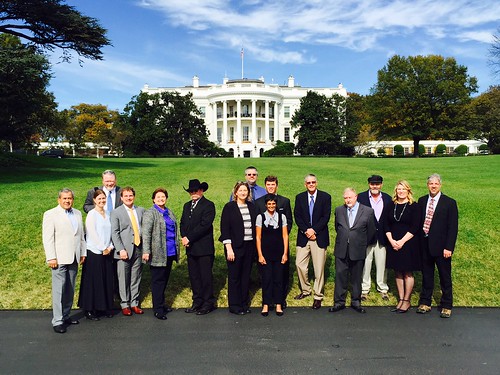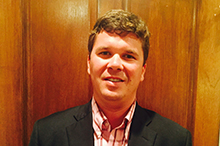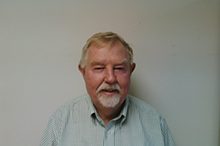
The White House recently recognized 12 Champions of Change for their leadership in sustainable and climate-smart agriculture. This week we will meet them through their USDA Regional Climate Hub, today featuring the Southeast’s William “Buddy” Allen and Donald Tyler.
Farmers, ranchers, and forest land managers across the Southeast are at the forefront of climate change and its various effects on their operations, yields, and profits. Many of these producers know that adaptive agriculture practices can benefit soil, air, and water quality and at the same time increase resilience to climate change and other environmental threats. Communities and businesses that support climate-smart agriculture in turn are creating jobs and growing the rural economy.
USDA’s Southeast Regional Climate Hub works to bring land managers in the Southeast the science and other tools that can help them adapt to changing weather/climate conditions. Many farmers, ranchers and land managers are already leading efforts to develop and demonstrate the value of sustainable agricultural practices that benefit soil, air, and water quality while helping to mitigate climate change by reducing emissions. Educators and advisors have also been crucial in bringing science-based, sustainable, and climate-informed agricultural practices to the agricultural community.
The Hubs support the implementation of climate-informed agricultural practices so rural communities and businesses can help slow the effects of climate change while creating jobs, growing the economy, and providing the quantity and quality of food, fuel and fiber needed to meet the needs of the region, nation and world. The hubs rely on the support of early-adopters to help lead the agricultural community down the path of sustainable and productive practices that will conserve our nation’s natural resources.
The White House hosted a Champions of Change event to recognize some of these leaders – including farmers, ranchers, agricultural educators, crop advisors, and others – who are taking steps to make their operations more sustainable and teaching others how to do the same.
Two leaders from the Southeast were honored for their work:

William “Buddy” Allen is a producer in Tunica, Mississippi and a member of the Macon Edwards Company, a Washington DC-based consulting firm. He is actively involved in several agriculture related businesses, including a large-scale multi-crop farming operation in Mississippi. Buddy is a leader in conservation on the farm and holds a leadership role in several agricultural and conservation organizations.
Donald Tyler, PhD, is a soil management researcher in the Biosystems Engineering and Soil Science Department at the University of Tennessee. He has done research in soil management for over 37 years. When he arrived in Tennessee, soil erosion rates were some of the highest in the United States. He is being honored for his research and outreach contributions in the areas of no-till cropping systems. These systems have reduced soil erosion by up to 95 percent, enhanced soil carbon storage from 1 percent to 4 percent, and increased soil biodiversity. No-tillage adoption is now greater than 70 percent for corn, soybean, and cotton acreage in his home state of Tennessee.

Take a look at the Southeast Climate Change Vulnerability Assessment released last month. Not only does it outline our region’s potential risks and vulnerabilities, it also presents adaptation strategies, mitigation opportunities, and USDA programs designed to help working land managers put climate-smart agriculture into practice.
These Champions of Change are making a difference in the Southeast, and the Hubs look forward to working with these leaders and others like them to pave the way to a more resilient future.



